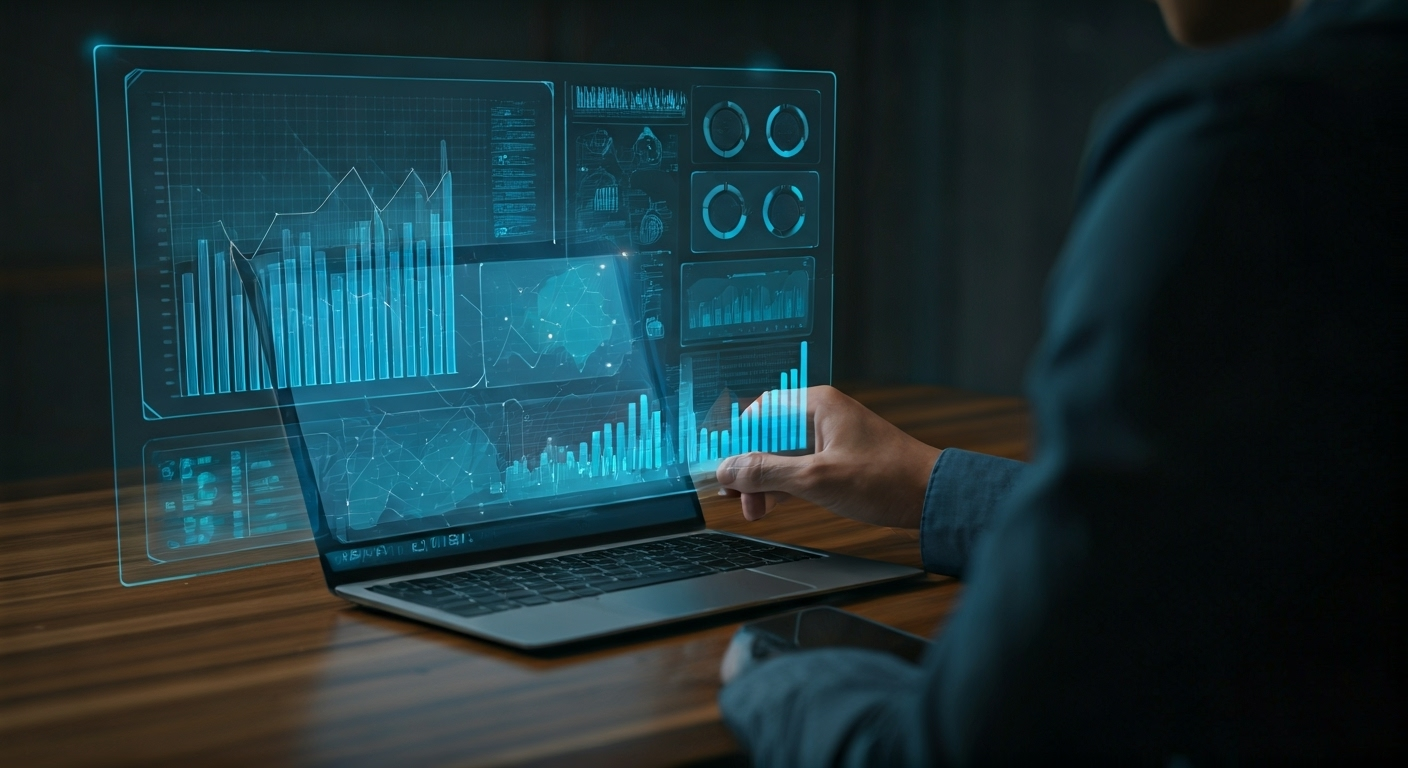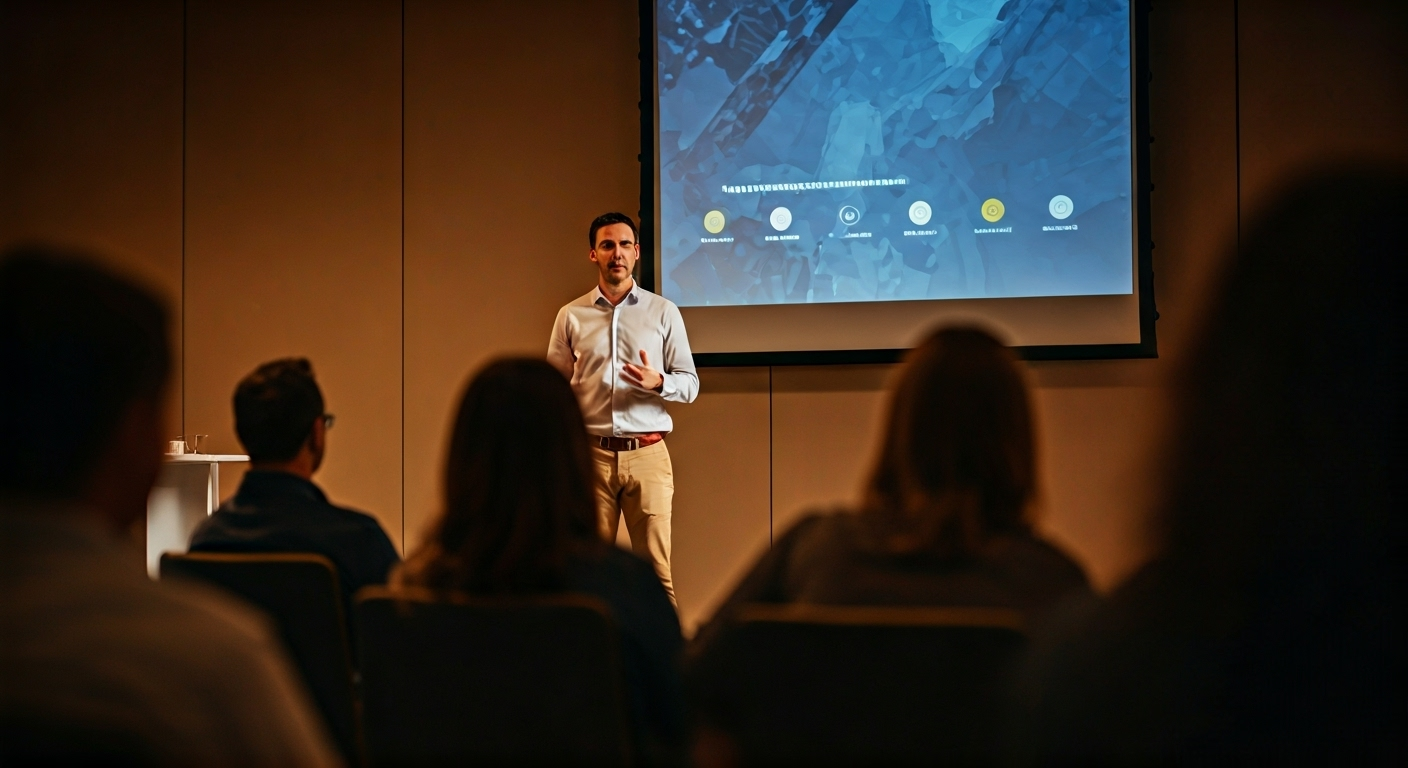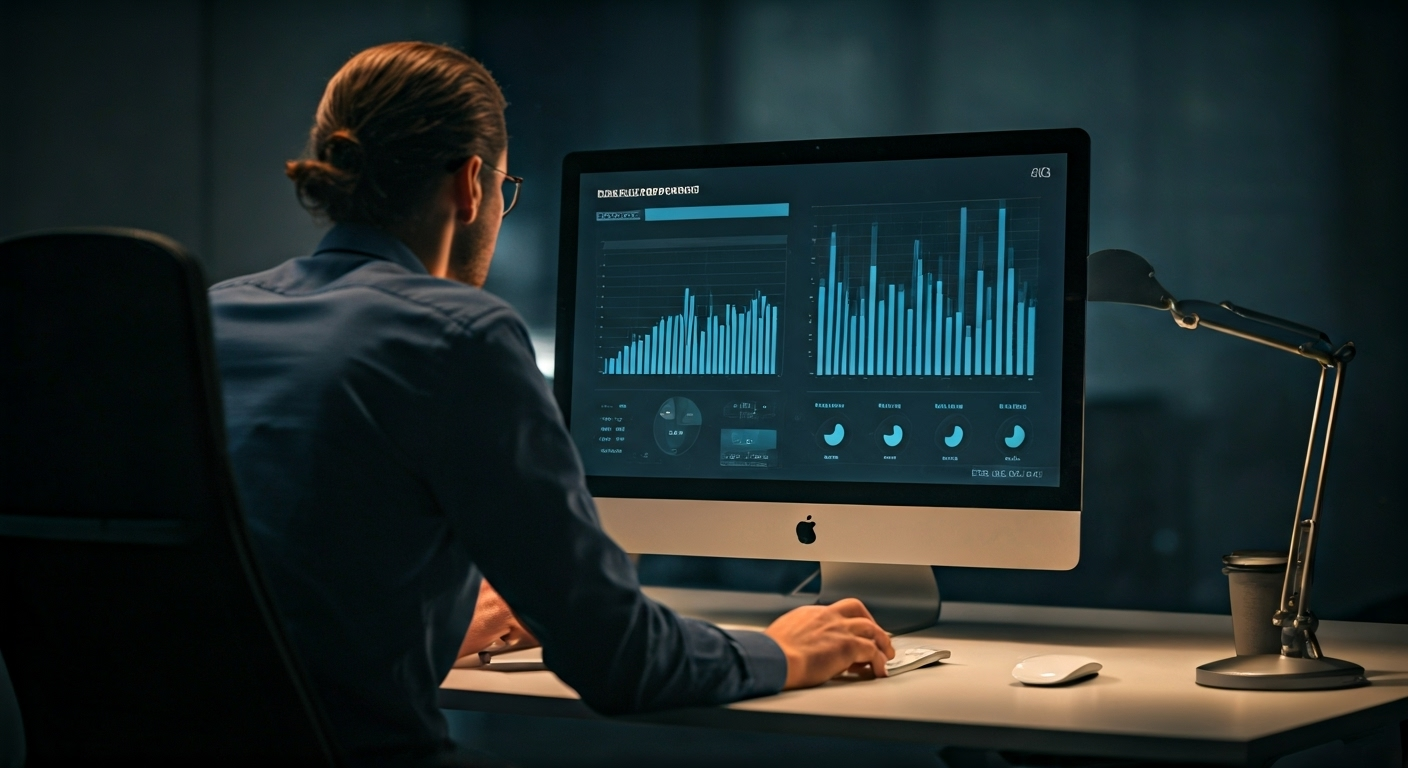August 26, 2025
AI Content Marketing Changes 2025: Adapt or Fall Behind

Greg Kopyltsov
Founder
ai content marketing changes 2025


Rapid advancements in artificial intelligence are rewriting the rules of content marketing. By 2025, AI-powered marketing trends will force professionals to rethink their strategies, harnessing data-driven insights to shape every campaign. Businesses need to leverage innovative ai tools to automate routine tasks, personalize customer journeys, and enhance engagement across all digital channels. As artificial intelligence becomes integral, content marketing will shift from manual planning to smart, real-time decision-making, redefining how brands connect with audiences and measure success.

The ai revolution is radically reshaping content marketing. By 2025, marketing teams will rely on artificial intelligence not only to automate processes, but to predict consumer behavior, optimize campaign performance, and deliver personalized experiences at scale. This transformation goes beyond technology—it’s changing the very nature of how marketers create, distribute, and measure content.
Industry changes are being driven by both necessity and opportunity. The stakes are high: marketers who fail to adapt risk being left behind, while those who embrace ai tools gain a powerful competitive advantage. What are the key ways AI will reshape content marketing strategies by 2025? Expect smarter audience segmentation, real-time ideation, and agentic AI systems to fundamentally alter your marketing approach.
Marketing teams are moving swiftly to adopt ai across daily workflows. In the past, digital marketing relied heavily on manual processes, but ai-powered platforms now handle everything from data analysis to campaign execution. This shift frees professionals from repetitive tasks, enabling them to focus on strategic and creative work that drives growth. Christina Inge, Harvard instructor, confirms, “Your job will not be taken by AI. It will be taken by a person who knows how to use AI.”
Routine activities like copywriting, social media scheduling, and data mining are handled in minutes rather than hours, thanks to automation. AI adoption has gone mainstream, with 88% of marketers using ai tools every day. The Marketing AI Institute’s 2024 report highlights that most professionals see AI as indispensable for optimizing digital campaigns and improving efficiency.
By empowering marketing teams to leverage ai for smarter decision-making and customer engagement, companies gain deeper insights and quickly adapt strategies to market shifts. This acceleration is pushing content marketing to become more data-driven, personalized, and proactive, creating a new standard for competitive edge.
Multiple industry drivers are fueling the rapid advancement of ai technologies in marketing. As consumer expectations shift toward more personalized and relevant experiences, marketers must harness innovation to stay competitive. Data privacy concerns and regulatory pressures are also pushing companies to adopt transparent, ethical ai systems.
Key industry drivers include:
Specific ai technologies predicted to have the biggest impact include large language models like GPT-4 and Gemini, which enable scalable content creation, and predictive analytics platforms that anticipate customer behavior. The emergence of agentic AI systems, capable of autonomous campaign orchestration, is expected to further disrupt traditional marketing strategies. As these technologies mature, brands that integrate them early will have a clear lead in the marketplace.

AI is transforming marketing strategies with advanced ai tools that automate planning, enhance personalization, and enable dynamic audience targeting. By 2025, marketers will leverage machine learning for predictive analytics, creating hyper-relevant campaigns that adapt in real time to consumer interactions. The future of ai promises not just increased efficiency, but smarter, data-driven decisions across every channel.
Gaining a competitive edge will depend on your ability to use ai tools for faster content creation, audience segmentation, and optimization. Marketers who understand and master these evolving strategies will lead the industry, while others risk falling behind as the pace of change accelerates.
Identifying and reaching target audiences is being revolutionized by ai-driven audience segmentation. Predictive analytics now allow marketers to analyze vast amounts of behavioral data, uncovering micro-segments and emerging trends that were previously invisible. By 2025, AI will transform personalization by anticipating user intent and tailoring messaging for each individual.
This hyper-targeting goes beyond broad demographics, using machine learning to predict purchasing decisions and deliver content when and where it’s most relevant. Marketers can move from reactive strategies to proactive ones, crafting campaigns that speak directly to the right audience at the right moment.
The result? More meaningful customer experiences, higher engagement, and increased conversion rates. AI’s ability to optimize targeting and personalization ensures your campaigns resonate, building both brand loyalty and measurable business outcomes.
Strategic planning in marketing is undergoing a major transformation through automation. AI-powered tools streamline the workflow, taking over data analysis, market research, and campaign development. Rather than spending hours compiling reports or brainstorming ideas, marketers can now generate outlines, plans, and drafts with just a few clicks.
Machine learning algorithms help identify trends and forecast campaign performance, allowing teams to shift resources quickly and respond to changing market dynamics. Automation enables faster iteration, reducing bottlenecks and freeing team members to focus on high-level strategy and creative direction.
By 2025, the efficiency and effectiveness of content creation will be elevated, as marketers leverage these smart systems to scale their output, improve accuracy, and deliver tailored content that aligns with business goals.

Content creation is no longer limited to manual production. AI tools and generative ai models now empower marketers to produce blog posts, videos, and visuals faster and at scale. These solutions streamline the entire process, allowing professionals to craft consistent, high-quality assets that match their brand voice and audience needs.
By embracing AI-powered content creation, your marketer’s toolkit becomes more versatile and dynamic. The ability to ideate, generate, and optimize content in real time ensures campaigns stay relevant, engaging, and effective across every platform.
Generative ai is redefining the way blog posts, videos, and digital assets are produced. Platforms like ChatGPT and Jasper enable marketers to generate tailored articles, product descriptions, and social media posts with remarkable speed. Video creation tools such as Synthesia and Pictory allow the rapid development of explainer videos and branded content.
Key advantages include:
By 2025, generative ai will be essential for marketers who must create large volumes of personalized content. Not only does this approach save time and resources, but it also increases the effectiveness of digital marketing by ensuring every piece of content is data-driven and audience-focused.
The integration of ai tools into content ideation is transforming digital marketing workflows. Real-time brainstorming platforms let marketers input prompts and instantly receive topic ideas, outlines, and creative variations. This rapid feedback loop keeps campaigns agile and responsive to market trends.
AI-powered systems can analyze social media conversations, search engine data, and customer reviews to suggest themes and messaging that resonate with your audience. As a result, marketers can quickly pivot strategies, experiment with new formats, and stay ahead of competitors.
Efficiency gains are clear: teams spend less time blocked on creative tasks and more time refining concepts for impact. By 2025, real-time content ideation powered by ai will be a staple for forward-thinking marketing teams looking to maximize productivity and campaign relevance.

2025 will see ai technologies like deep learning and natural language processing reshape content strategy. Marketers can harness these innovations to better understand audience behavior, automate campaign planning, and optimize content for digital platforms. Large language models and predictive analytics will be central to driving personalized, high-impact marketing efforts.
The biggest impact will come from tools capable of analyzing unstructured data, generating insights, and creating content at scale. By integrating advanced ai into your strategy, you ensure that every message reaches its intended audience and every campaign achieves its full potential.
Large language models such as GPT-4 and Gemini are setting new standards in natural language processing. These ai technologies enable marketers to create engaging, relevant content with speed and precision. By analyzing context and audience behavior, LLMs can generate articles, scripts, and messaging that reflect brand voice and objectives.
GPT-4, for example, brings advanced understanding of semantics and style, making it possible to automate long-form content and conversational marketing. Gemini excels at summarizing documents, crafting messaging, and automating routine tasks for integrated marketing campaigns.
Next-generation tools will further expand capabilities, enabling marketers to optimize content for both traditional search engines and ai-driven discoverability. In 2025, these large language models will be at the core of every successful content strategy, driving both personalization and scale.
Predictive analytics is revolutionizing how marketers forecast customer behavior. By leveraging machine learning, these platforms analyze historical and real-time data to anticipate purchasing decisions, content engagement, and audience trends. This level of insight supports more precise targeting and personalization in 2025.
Behavior forecasting allows brands to adjust messages, offers, and timing dynamically. Whether it’s identifying which leads are likely to convert or spotting shifts in audience interests, ai enables marketers to create campaigns that truly resonate.
Personalized journeys are no longer based on guesswork; they’re crafted from deep, actionable data. Predictive analytics ensures that every interaction is relevant, boosting loyalty and maximizing the impact of marketing investments.

The future of ai in marketing will be shaped by emerging trends that redefine campaign execution and customer engagement. Hyper-personalized experiences, real-time optimization, and advanced search engine strategies are driving a new era of digital transformation. AI trends such as agentic systems and generative engine optimization are gaining momentum.
Businesses should prepare for dynamic marketing campaigns that adapt instantly to consumer behavior. Staying informed about these marketing trends is essential; those who evolve with ai technologies will unlock new growth opportunities and maintain a strong competitive position.
Hyper-personalization is becoming the gold standard for marketing campaigns. AI-powered engines now analyze user interactions, real-time intent, and contextual triggers to deliver content that feels uniquely tailored to each customer. Marketers can reconfigure website layouts, adjust messaging, and recommend products based on individual preferences and behavioral data.
With hyper-personalization, relevant content reaches users at the ideal time and on the right device, enhancing engagement and conversion rates. AI’s predictive power makes it possible to anticipate needs and proactively craft experiences that build loyalty.
By 2025, brands that master hyper-personalized campaigns will see significant returns. “91% of consumers say they are more likely to shop with brands that offer personalized experiences,” according to recent studies. The key is leveraging ai trends to deliver relevance at scale, ensuring every touchpoint adds value.
Optimizing for voice and visual search is an essential part of 2025’s ai-driven marketing strategies. AI technologies now enable brands to be discovered through spoken queries and image uploads, fundamentally altering search engine optimization practices.
Key developments include:
Platforms like WellSaid Labs, ElevenLabs, and Google’s AI-powered Search are setting new standards for search engine optimization. Marketers must optimize content for both human readers and ai platforms, making brand information accessible across voice and visual channels. Success will depend on your ability to integrate and adapt to these cutting-edge trends.
Personalization and targeting are being revolutionized by ai platforms in digital marketing. Marketers now use advanced algorithms to analyze behavior, segment audiences, and customize messaging at scale. By 2025, AI will move beyond simple personalization, offering dynamic content adaptation and micro-moment targeting.
This evolution ensures your marketing campaigns speak directly to individual preferences and needs. Businesses that invest in ai-driven personalization and precise targeting will outperform competitors and build stronger relationships with their customers.
AI platforms are driving dynamic content customization at scale. Marketers can now deliver personalized experiences that adjust in real time, responding to changes in customer behavior and context. From product recommendations to adaptive website layouts, AI systems ensure that every interaction feels tailored.
Personalization engines analyze purchase history, browsing habits, and engagement patterns to create targeted offers and messaging. This level of customization builds deeper connections, increases engagement, and enhances customer experiences.
By 2025, content customization will be an expectation, not a differentiator. Brands must employ smart ai platforms to remain relevant, using data to deliver value and strengthen loyalty at every touchpoint.
Machine learning is powering micro-moment targeting, enabling brands to engage customers at critical points along their journey. Whether it’s a split-second decision to click or a last-minute purchase, ai tools identify opportunities and deliver content that matches intent.
By analyzing real-time signals and contextual data, machine learning algorithms predict when and how to engage users. This ensures that offers, messages, and recommendations land at precisely the right moment, increasing conversion rates.
Micro-moment targeting transforms the customer journey from static to dynamic, allowing marketers to adapt strategies in seconds. As ai becomes more sophisticated, expect these micro-engagements to drive measurable business results.

Efficiency gains from ai adoption are transforming content creation, marketing activities, and campaign management. Automation handles routine tasks, saving time, reducing costs, and boosting output without sacrificing quality. By 2025, marketers will work smarter, not harder, thanks to intelligent automation and streamlined workflows.
AI-powered tools also deliver real-time insights and automate editing, proofreading, and repurposing, enabling teams to focus on strategic and creative work. The result is more impactful campaigns and measurable improvements in productivity.
AI-driven editing and proofreading tools are revolutionizing the final stages of content creation. Automated systems check for grammar, consistency, and brand voice, delivering polished assets in seconds. This enhances quality while drastically reducing turnaround times.
Content repurposing is another major benefit. AI tools can convert blog posts into social media updates, video scripts, or email campaigns, extending the life and reach of every piece of content. Marketers can maximize their investment in original content and maintain a consistent presence across channels.
By streamlining these marketing activities, AI ensures teams operate efficiently, freeing up resources for innovation and strategic growth. The ability to automate editing and repurpose content will become a standard expectation as marketing evolves in 2025.
Intelligent task management platforms powered by ai simplify and optimize marketing workflows. These tools take over repetitive tasks, such as scheduling, reporting, and campaign monitoring, ensuring that nothing falls through the cracks.
Marketers can assign, track, and complete activities with greater accuracy and speed. AI-driven systems also provide reminders, automate updates, and generate insights for next steps, helping teams stay on track and adapt to changes quickly.
The result? More time for creative ideation and strategic planning, as marketing tools handle the logistical details. By 2025, intelligent workflow management will be a critical part of every high-performing marketing team’s toolkit.

Practical use cases show how AI is revolutionizing content marketing. Content marketers are using ai-generated white papers, chatbots, and personalized recommendations to gain a competitive edge and deliver measurable results. These data-driven strategies enhance customer engagement and drive business growth.
Examining real-world examples reveals best practices for integrating ai into your marketing efforts. Learning from successful brands helps you understand how to maximize impact and adapt your strategy for the evolving digital landscape.
B2B brands are leveraging ai-generated white papers for thought leadership and strategy demonstration. These documents provide in-depth industry analysis, actionable recommendations, and showcase expertise—without the extended production timelines of manual drafting.
Key impacts include:
AI-powered content tools analyze trends, compile research, and draft white papers tailored to specific audiences. This approach enables B2B marketers to maintain a competitive advantage, adapt messaging to evolving market demands, and establish themselves as leaders in their field.
E-commerce companies are transforming customer engagement with ai-driven chatbots and smart recommendations. Chatbots handle queries, guide users through purchasing, and personalize product suggestions based on browsing and purchase history.
This seamless integration of ai tools boosts satisfaction by offering instant support and tailored experiences. Smart recommendation engines analyze vast data sets, ensuring that customers receive relevant offers and content at every touchpoint.
These strategies not only enhance conversion rates but also foster loyalty and repeat business. By 2025, e-commerce brands that harness ai for customer engagement will set new standards for service and personalization.
Marketing leaders must prepare for new ai-driven trends by adopting collaborative workflows and investing in ongoing education. The pace of ai adoption requires organizations to reskill teams and rethink traditional approaches to campaign development. Staying ahead means being agile, testing innovations, and learning from successes and failures.
Businesses preparing for the future should watch emerging marketing trends, experiment with agentic ai systems, and build cross-functional teams that combine human creativity with machine efficiency. Adapting quickly is critical to winning in an AI-first marketing landscape.
Team skills are evolving as ai workflows become central to marketing operations. Marketers must learn to collaborate with ai platforms, interpret data-driven insights, and refine outputs for brand consistency and emotional resonance. Training is essential; those who understand how to guide and QA ai-generated content will be in high demand.
Collaborative ai workflows foster cross-team communication, allowing strategists, creatives, and analysts to work together seamlessly. AI handles heavy lifting, while human expertise ensures relevance and authenticity. This hybrid approach leads to smarter campaigns and more innovative solutions.
Marketing teams should prioritize upskilling, experimenting with new tools, and developing flexible processes. “Keep an eye on how AI is impacting various roles and proactively build your expertise,” advises Christina Inge. The ability to adapt and collaborate will define the most successful teams in 2025.
Seamless integration of ai tools into your marketing tech stack is critical for maximizing impact. Marketers must assess current platforms, identify gaps, and select ai solutions that complement their workflows. Successful integration ensures campaigns are data-driven, scalable, and adaptable to rapid market changes.
Key steps for integration:
By embedding ai into existing marketing efforts, organizations future-proof their strategies and unlock new value. Integration is not just about efficiency—it’s about creating a flexible, responsive system that evolves with emerging trends and technologies.
Industry leaders recommend a range of ai platforms and content marketing tools for 2025. These solutions cover generative content creation, SEO optimization, analytics, and campaign automation. For example, Surfer SEO helps optimize content for both traditional and ai-powered search engines, while YouTube Shorts can be enhanced with automated video editing tools.
Choosing the right stack depends on your goals and team needs. Adopting these recommended tools ensures you stay competitive and deliver high-quality, scalable marketing campaigns.
Generative content creation is powered by advanced ai tools that automate ideation, drafting, and optimization. Platforms like ChatGPT, Jasper, and Claude are favored for producing blog posts, social media content, and product descriptions at scale. Video generation tools such as Pictory and Synthesia bring speed and versatility to multimedia campaigns.
Below is a text table summarizing top ai tools for content creation:
Tool Name
Core Functionality
Best Use Case
ChatGPT
Text generation, brainstorming, conversational content
Blog posts, FAQs, email copy
Jasper
AI writing assistant, brand voice memory, content analytics
Long-form blogs, reports
Claude
Multilingual content, formal tone, logical flow
B2B white papers, translations
Pictory
AI-powered video editing, highlight detection, subtitles
YouTube Shorts, social video
Synthesia
Video creation with AI avatars, localization
Explainer videos, tutorials
Adopting these tools streamlines workflows and ensures consistent, brand-aligned output, giving marketing teams the edge they need in 2025’s digital landscape.
Data-driven decision making is crucial for modern marketers. Leading ai platforms for analytics and reporting include Salesforce Einstein, Google Marketing Platform, and Windsor.io. These tools integrate seamlessly with marketing campaigns, providing actionable insights and real-time performance tracking.
Top platforms offer:
Using advanced analytics helps marketers optimize strategies, allocate resources effectively, and demonstrate ROI. In 2025, integrating these platforms will be essential for sustaining growth and maintaining visibility across all digital channels.
Evaluating the return on investment (ROI) from AI-powered content marketing necessitates a strategic approach. Key metrics such as customer engagement rates, conversion rates, and revenue growth should be analyzed to gauge the effectiveness of AI-driven marketing campaigns. Utilizing predictive analytics can offer deeper insights into customer behavior, ensuring that the content aligns with target audiences, enhancing the overall content strategy. By integrating AI tools into the content creation process, marketers can streamline repetitive tasks and generate relevant content that resonates, leading to more effective marketing efforts and substantial ROI.
Tracking the effectiveness of AI in content marketing requires attention to several core metrics. Engagement rates across various formats, including blog posts and social media content, reveal how well audiences connect with generated content. Additionally, analyzing conversion rates helps in understanding the influence of AI on the customer journey, while monitoring customer acquisition costs can provide insights into the financial efficiency of AI-driven strategies. Leveraging predictive analytics further refines audience segmentation, allowing for tailored messaging that enhances overall marketing efforts and optimizes SEO strategies in evolving search landscapes.
Effective tracking of AI-driven campaign performance hinges on a few key practices. Utilizing advanced analytics tools can provide deeper insights into customer behavior and engagement patterns. Regularly monitoring campaign metrics such as conversion rates, audience segmentation, and ROI ensures marketing teams stay aligned with their objectives. Implementing real-time reporting allows for quick adjustments in strategy, optimizing each piece of content for better performance. Additionally, leveraging machine learning enhances predictive analytics, informing marketing strategies that resonate with target audiences across various social media platforms and improving overall campaign efficacy.
Navigating the landscape of content marketing with artificial intelligence requires a keen focus on ethical considerations. Ensuring transparency in AI-generated content fosters trust among consumers, promoting a genuine connection with target audiences. Additionally, addressing potential biases in algorithms is crucial for maintaining brand integrity and delivering relevant content. Managing data privacy remains a top priority; respecting customer consent not only safeguards user information but also enhances customer experiences. Ethical AI practices empower marketing teams to cultivate stronger relationships, leveraging deep learning and natural language processing to build lasting engagement while upholding ethical standards.
Identifying and mitigating bias is crucial for the ethical implementation of artificial intelligence in content marketing. Machine learning algorithms can inadvertently perpetuate existing biases within datasets, leading to skewed content that misrepresents target audiences. Employing rigorous testing and diverse data sets can help ensure that AI tools deliver fair and balanced insights. Transparency also plays a vital role in maintaining trust. Marketers should disclose the use of AI technologies in their campaigns, ensuring that audiences are aware of how their data is utilized. This openness fosters better customer relationships and enhances the overall customer experience.
The integration of AI in content marketing necessitates a proactive stance on data privacy and user consent. Ensuring compliance with regulations such as GDPR and CCPA is essential for maintaining trust with target audiences. Transparent communication regarding data usage bolsters customer engagement while using AI tools for audience segmentation can enhance personalization. Employing predictive analytics allows marketing teams to tailor content strategies effectively, minimizing the risks of mishandling sensitive information. Balancing informative content creation with ethical considerations will not only protect customer data but also cultivate stronger brand loyalty.
Harnessing AI technologies can significantly enhance small business content marketing efforts. By utilizing generative AI tools, businesses can streamline the content creation process, producing tailored marketing materials like blog posts and social media updates. This allows for better audience segmentation and improved customer engagement. Furthermore, the ability to analyze customer behavior through predictive analytics offers deeper insights into potential customers’ preferences. Small businesses can adopt these AI-driven strategies to level the playing field against larger competitors, ensuring their marketing campaigns remain relevant and impactful within the fast-evolving digital landscape.
A range of cost-effective AI tools exists for small to medium-sized businesses (SMBs) looking to enhance their content marketing efforts. These platforms not only streamline content generation but also simplify routine tasks such as audience segmentation and SEO optimization. Utilization of generative AI can lead to personalized customer experiences and deeper insights into customer behavior, making it easier to develop a tailored marketing strategy. By leveraging these AI technologies, SMBs can stay competitive in their marketing campaigns while maximizing their return on investment in a rapidly evolving digital landscape.
Small businesses can harness the transformative power of AI technologies to gain a competitive edge over larger competitors. By employing AI tools for content creation and marketing, they can efficiently utilize data analytics to tailor their strategies to audience segmentation, enhancing customer engagement. These AI-driven solutions not only optimize repetitive tasks but also provide deeper insights into customer behavior and marketing trends. Adopting cost-effective AI platforms allows SMBs to enhance their brand voice, ensuring relevant content that resonates with potential customers while maximizing the impact of their marketing efforts.
KeywordSearch has an AI Audience builder that helps you create the best ad audiences for YouTube & Google ads in seconds. In a just a few clicks, our AI algorithm analyzes your business, audience data, uncovers hidden patterns, and identifies the most relevant and high-performing audiences for your Google & YouTube Ad campaigns.
You can also use KeywordSearch to Discover the Best Keywords to rank your YouTube Videos, Websites with SEO & Even Discover Keywords for Google & YouTube Ads.
If you’re looking to SuperCharge Your Ad Audiences with AI - Sign up for KeywordSearch.com for a 5 Day Free Trial Today!
Embracing the transformative changes in AI content marketing is not merely advantageous; it's essential for survival in a competitive landscape. As marketing leaders harness AI tools, they unlock enhanced customer insights and optimize their content creation processes, yielding superior engagement and performance. The use of predictive analytics and machine learning ensures that marketing strategies remain relevant and impactful. Adopting these innovations positions brands to navigate shifts in consumer behavior, enabling them to connect deeply with target audiences and elevate their marketing efforts to new heights. Prepare to adapt or risk falling behind.
To start using AI in your content marketing strategy for 2025, identify specific goals, explore AI tools tailored to your needs, and analyze competitors' AI usage. Begin with small-scale tests to refine your approach while ensuring alignment with your overall marketing objectives.
The biggest challenges when adopting AI in content marketing include integrating AI tools with existing systems, ensuring data quality, managing costs, overcoming resistance to change among team members, and addressing ethical concerns related to bias and transparency. Each of these factors can impact overall effectiveness.
In 2025, industries such as e-commerce, healthcare, and finance are set to benefit significantly from AI-driven content marketing. These sectors can leverage automation for personalized customer interactions, data analysis for targeted campaigns, and efficient content generation to enhance overall marketing effectiveness.